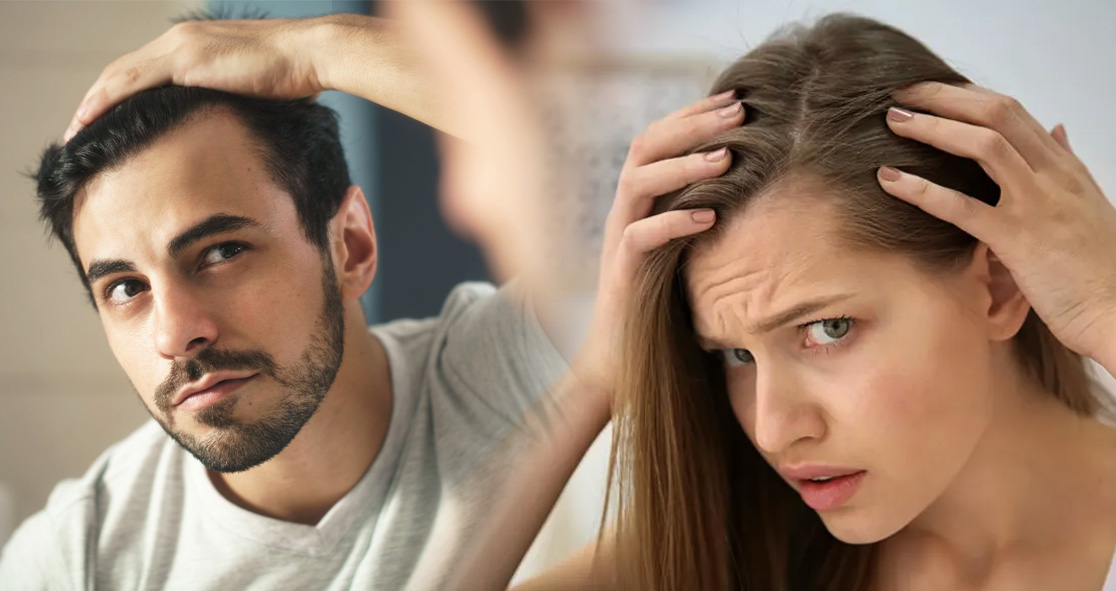Google searches for hair loss rose to 8% in the last year, according to Spate, a data science firm. In the United States, the topic has been searched more than 829,000 times a month.
It is estimated that the average person loses around 50 to 100 hairs a day out of 100,000, according to The American Academy of Dermatology. New hair normally replaces the lost hair, but this does not always happen.
There could be several reasons why your hair does not grow back, ranging from genetic predispositions to underlying diseases like androgenic alopecia. Stress is one of the common causes of hair loss. Stress-related hair loss is called telogen effluvium, which has seen a 400% increase since the beginning of the COVID pandemic, especially in women.
Dr. Michele Green, a cosmetic dermatologist in NYC, says she has seen a lot of hair loss patients during the pandemic.
Dr. Green told Katie Couric, an award-winning journalist, “I’ve never seen so many hair loss patients in my entire life. It’s to the point where it’s actually a little bit stressful.”
We often rely on Google to know what are the solutions for hair loss and how to diagnose it. However, it is always better to seek professional help. Dr. Green says a simple visual inspection is enough to diagnose hair loss, but lab work could help determine the severity of the condition.
“The hair is a very good marker that can really tell us what’s going on,” she explains. “For some patients, that means that the hair can even tell us if you’re having a reaction to a medication and the medication is causing the hair loss.”
So what about the over-the-counter products? Are OTC hair loss treatments effective?
There are a number of hair loss treatments available without a prescription, for instance, minoxidil (Rogaine) solution. Although OTC products like minoxidil help many people to regrow their hair or at least slow the rate of it, Dr. Jeff Donovan of the Donovan Hair Clinic in Canada emphasizes that its efficacy can vary from person to person.
Dr. Donovan told Couric, “It certainly can help. It doesn’t help everyone and it doesn’t help everyone dramatically, but it certainly does help.”
Other OTC hair loss pills, such as Viviscal and Nutrafol, can also be effective, according to the experts. These are drug-free hair loss supplements that are generally used for excessive shedding or mild hair loss.
Dr. Green says, “I often tell people they can get Nutrafol or Viviscal, especially if they want something natural and they don’t want to take any medications.”
What about prescription drugs for hair loss? Both Drs. Green and Donovan say they often prescribe Propecia (finasteride) – the only prescription hair loss drug approved by the U.S. Food and Drug Administration (FDA). Developed by Merck, Propecia was approved in December 1997 for androgenic alopecia.
For more information on what Drs. Green and Donovan have to say on hair loss treatments, visit Katie Couric Media. Couric is one of the New York Times best-selling authors and a co-founder of Stand Up To Cancer (SU2C).























